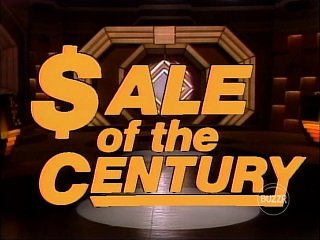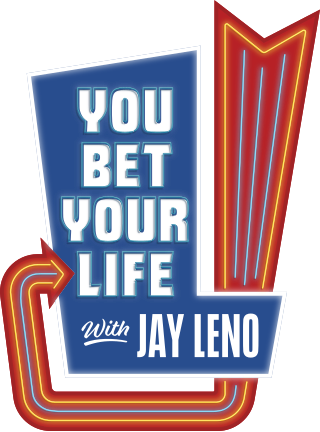Related Research Articles

A game show is a genre of broadcast viewing entertainment where contestants compete for a reward. These programs can either be participatory or demonstrative and are typically directed by a host, sharing the rules of the program as well as commentating and narrating where necessary. The history of game shows dates back to the invention of television as a medium. On most game shows, contestants either have to answer questions or solve puzzles, typically to win either money or prizes. Game shows often reward players with prizes such as cash, trips and goods and services provided by the show's sponsor.

Match Game is an American television panel game show that premiered on NBC in 1962 and has been revived several times over the course of the last six decades. The game features contestants trying to match answers given by celebrity panelists to fill-in-the-blank questions. Beginning with the CBS run of the 1970s, the questions are often formed as humorous double entendres.

Press Your Luck is an American television game show created by Bill Carruthers and Jan McCormack. The show features contestants answering trivia questions to earn "spins" on a randomly-generated game board with 18 slides. Spaces on the board correspond to cash, extra spins, prizes, and the show's mascot, a cartoon creature known as the Whammy. Landing on the Whammy eliminates any cash and prizes accumulated while also displaying a short comedic animation. Its format is a revival of an earlier Carruthers production, Second Chance, which was hosted by Jim Peck and aired on ABC in 1977. The original version of Press Your Luck aired on CBS between 1983 and 1986. This version featured Peter Tomarken as host, Rod Roddy as announcer, and Carruthers as both director and the voice of the Whammy.
"FYI" is a common abbreviation of "for your information". The term, originally a wire service abbreviation used by journalists, is commonly used in email, instant messaging and other messages to indicate an informational message or explanatory statement not suggesting any action, or requiring a response. The abbreviation is also commonly used in spoken conversations.

Family Feud is an American television game show created by Mark Goodson. It features two families who compete to name the most popular answers to survey questions in order to win cash and prizes.
The $64,000 Question was an American game show broadcast in primetime on CBS-TV from 1955 to 1958, which became embroiled in the 1950s quiz show scandals. Contestants answered general knowledge questions, earning money which doubled as the questions became more difficult. The final question had a top prize of $64,000, hence the "$64,000 Question" in the show's title.

Card Sharks is an American television game show. It was created by Chester Feldman for Mark Goodson-Bill Todman Productions. The game features two contestants who attempt to predict the outcome of survey questions to gain control of a row of oversized playing cards, then determine whether the next card drawn is higher or lower. The title Card Sharks is a play on the term "card sharp", a person skilled at card games.

The Newlywed Game is an American television game show that puts newly married couples against each other in a series of revealing question rounds to determine how well the spouses know or do not know each other. The program, originally created by Robert "Nick" Nicholson and E. Roger Muir and produced by Chuck Barris, has appeared in many different versions since its 1966 debut. The show became famous for some of the arguments that couples had over incorrect answers in the form of mistaken predictions, and it even led to some divorces.
Twenty questions is a spoken parlor game, which encourages deductive reasoning and creativity. It originated in the United States and was played widely in the 19th century. It escalated in popularity during the late 1940s, when it became the format for a successful weekly radio quiz program.

Sale of the Century is an American television game show that originally debuted on September 29, 1969, on NBC daytime. It was one of three NBC game shows to premiere on that date, the other two being the short-lived game shows Letters to Laugh-In and Name Droppers. The series aired until July 13, 1973, and a weekly syndicated series began that fall and ran for one season.

You Bet Your Life is an American comedy quiz series that has aired on both radio and television. The original and best-known version was hosted by Groucho Marx of the Marx Brothers, with announcer and assistant George Fenneman. The show debuted on ABC Radio on October 27, 1947, moved to CBS Radio debuting October 5, 1949, and went to NBC-TV and NBC Radio on October 4, 1950. Because of its simple format, it was possible to broadcast the show on both radio and television but not simultaneously. Many of the laughs on the television show were evoked by Groucho's facial reactions and other visual gimmicks; the two versions were slightly different. The last episode in a radio format aired on June 10, 1960. The series continued on television for another year, recording a season on September 22, 1960 with a new title, The Groucho Show.
The Hitchhiker's Guide to the Galaxy is a comic science fiction series created by Douglas Adams that has become popular among fans of the genre and members of the scientific community. Phrases from it are widely recognised and often used in reference to, but outside the context of, the source material. Many writers on popular science, such as Fred Alan Wolf, Paul Davies, and Michio Kaku, have used quotations in their books to illustrate facts about cosmology or philosophy.

Who Wants to Be a Millionaire is an American television game show adapted from the same-titled British program created by David Briggs, Steven Knight and Mike Whitehill and developed for the United States by Michael Davies. The show features a quiz competition with contestants attempting to win a top prize of $1,000,000 by answering a series of multiple-choice questions, usually of increasing difficulty. The program has endured as one of the longest-running and most successful international variants in the Who Wants to Be a Millionaire? franchise.

2-XL is an educational toy robot that was marketed from 1978–1981 by the Mego Corporation, and from 1992–1995 by Tiger Electronics. 2-XL was the first "smart-toy" in that it exhibited rudimentary intelligence, memory, gameplay, and responsiveness. 2-XL was infused with a "personality" that kept kids focused and challenged as they interacted with the verbal robot. Learning was enhanced via the use of jokes and funny sayings as verbal reinforcements for performance. 2-XL was heralded as an important step in the development of toys, particularly educational ones. 2-XL won many awards, and Playthings, a toy industry magazine, placed 2-XL on its 75th anniversary cover as one of the industry's top-ten toys of all time. The 2-XL name is a pun of the phrase "To Excel".

Who Do You Trust? is an American television game show.

Kids Are People Too is an American television series that ran on Sunday mornings from 1978 to 1982 on ABC. The series was a variety/news magazine show oriented towards kids with the intention of recognizing them as people. During its four-year run, the series was nominated for five Emmy Awards and won the 1978 Emmy Award for Outstanding Children's Entertainment Series. The series included celebrity interviews, cartoons, music, and other information that appealed to children.
FYI is an abbreviation of "for your information".
Food Factory is a Canadian television series produced by Cineflix airing in that country on the Food Network, and in the United States on National Geographic, Quest, and FYI. The show features the industrial production lines of major food companies, mostly in Canada, but also in the United States, and occasionally in other countries. It is co-narrated by Colleen Rusholme and Todd Schick.
The Daytime Emmy Award for Outstanding Special Class Series is an Emmy award given to television programs that do not "fall into other established categories." Prior to 2000, the category was referred to as Special Class Program and both series and specials competed in the same category. A separate category for singular specials was created in 2000.

Twenty Questions, based on the guessing game Twenty questions, started as a radio quiz show in 1946. The television series ran on NBC in 1949, on ABC from 1950 to 1951 and on the DuMont Television Network from 1951 to 1954.
References
(Sources for this article come from the books mentioned above.)